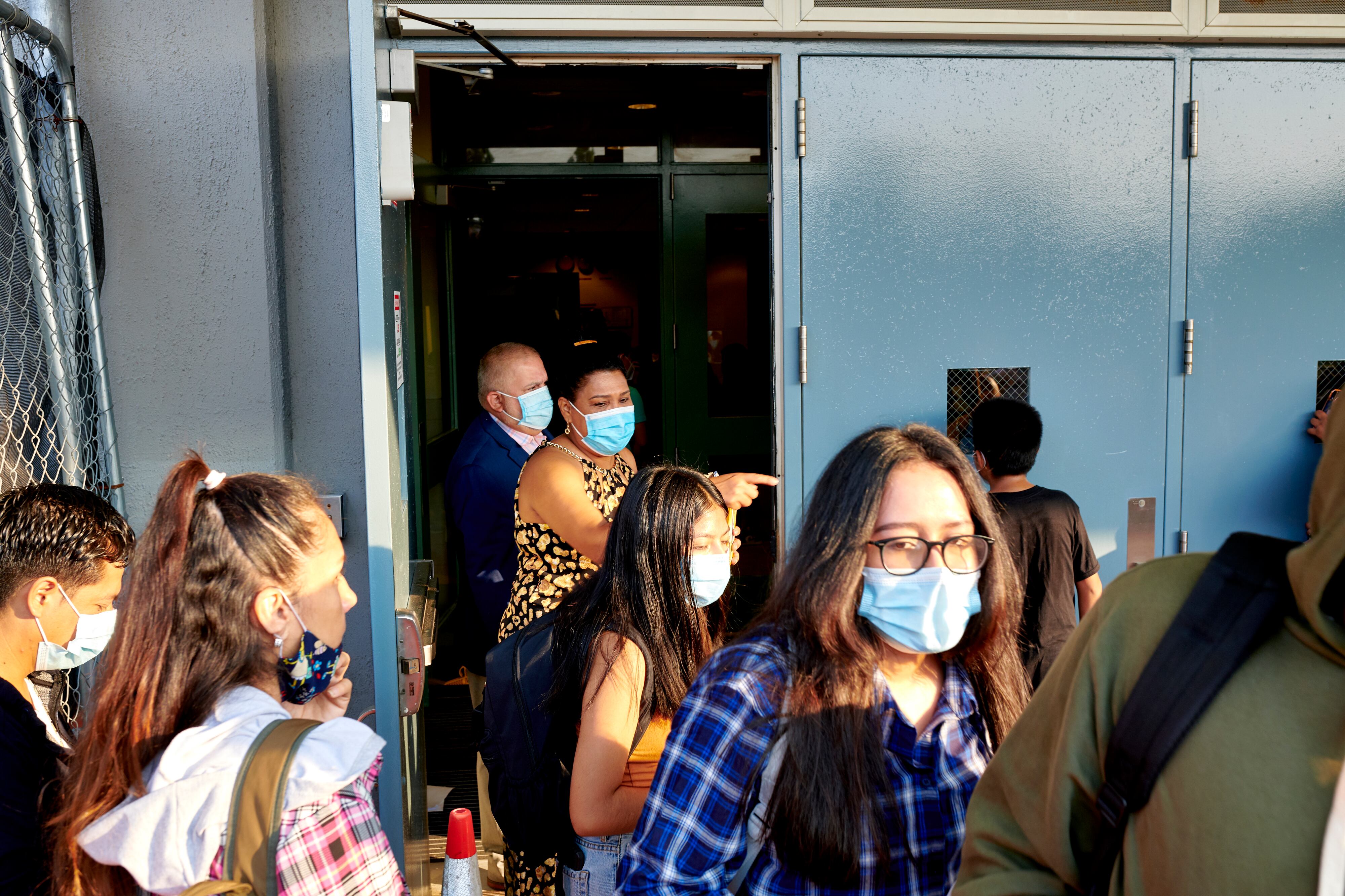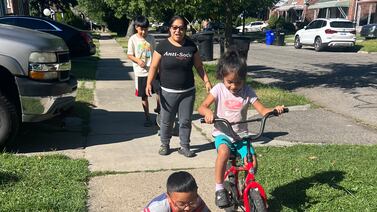This story was originally published by Chalkbeat. Sign up for Chalkbeat New York’s free daily newsletter to keep up with the city’s public schools.
More than 900,000 students will return to New York City schools on Thursday, after a summer that saw Covid cases surge across the nation and the five boroughs.
But don’t expect any changes to Covid guidance for the start of the 2024-25 school year.
Students will not be mandated to quarantine at home upon testing positive for the virus, under a policy adopted by city agencies in the spring that eliminated a prior five-day isolation requirement. Instead, officials ask individuals to remain at home until their symptoms improve as per the latest guidance from the U.S. Centers for Disease Control and Prevention.
“There is no real new guidance, because this is going to be our new normal,” said Anne Williams-Isom, the city’s deputy mayor for Health and Human Services, during a Tuesday press conference.
She urged New Yorkers to get their updated Covid vaccine and stay home if feeling ill.
“If you’re not feeling well, if you have sniffles, you should stay at home so we’re not spreading it,” she said. “We just have to make sure that we’re taking those precautions, and it’s the same thing for kids as they’re going back to school.”
It may be difficult to track the city’s COVID rates as fewer people test for the virus. (The federal government discontinued its free at-home test program in March but plans to bring it back at the “end of September,” according to the CDC’s website.) A “very high” level of the virus was still being detected in New York state’s wastewater as of late August, according to CDC data.
Since March 1, the CDC has instructed people to stay home until their symptoms improve and they remain fever-free for at least 24 hours without using fever-reducing medication. The federal agency still advises people to take precautions over the following five days, including wearing a mask, social distancing, and testing. It’s part of a shift in health policy toward treating Covid like other common illnesses, including RSV and the flu.
Under current New York City Education Department policy, those who are experiencing Covid symptoms should isolate themselves from others and get tested. Like the CDC, the city advises students and staff to remain at home until symptoms have improved and they’re fever-free for 24 hours without medication.
The department also urges students and staff to wear a mask and take other precautions for five days after returning to school.
Those who test positive for Covid but do not exhibit symptoms do not need to stay home from school, according to the city’s policies. But upon returning to school, the city instructs individuals to take precautions to avoid getting others sick, such as wearing a mask and practicing good hygiene by covering coughs and sneezes, washing hands often, and using hand sanitizer.
The city’s Education Department did not immediately respond to a request for comment.
Julian Shen-Berro is a reporter covering New York City for Chalkbeat. Contact him at jshen-berro@chalkbeat.org.






